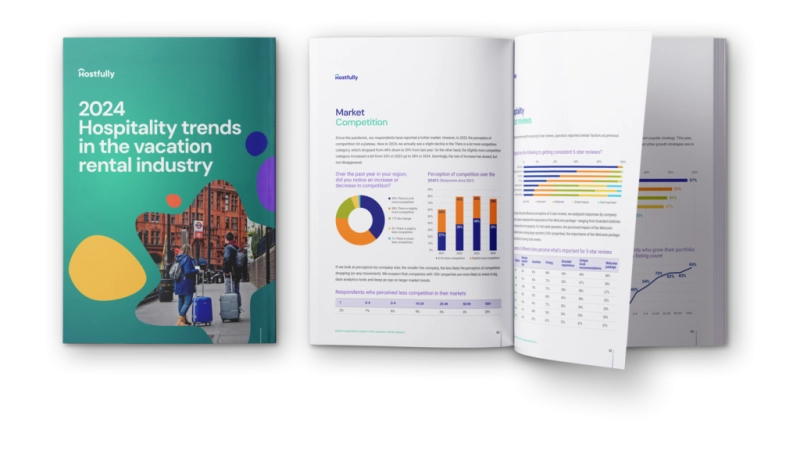- The vacation rental industry is experiencing a shift in booking sources, with a decline in Airbnb bookings and an increased reliance on direct bookings and alternative platforms.
- Property managers are increasingly integrating artificial intelligence to streamline processes, improve customer communication and potentially increase revenue.
A report from property management platform Hostfully has revealed significant changes in the vacation rental industry in recent years. Titled “2024 hotel trends in the vacation rental sector“, the study provided insight into the evolution of booking sources, the impact of technology and the role of artificial intelligence in the sector.
The report is based on a survey of 347 vacation rental operators, ranging from individual property managers to large vacation rental management companies, primarily based in North America. According to Hostfully, the results indicate a market that is adapting to economic challenges, with technology and artificial intelligence expected to play a central role in maintaining competitiveness.
The study showed a steady decline in Airbnb bookings, which have fallen 8% since 2022. Instead, operators are turning to direct bookings to avoid third-party online travel agency (OTA) fees and diversify thanks to multi-channel distribution facilitated by property management software. . Emerging players, like Google, are also playing a larger role, accounting for 5% of bookings.
The report also highlights industry growth through the addition of new listings, which is the most common strategy among property managers. High occupancy rates remain a priority objective for most operators, with 85% aiming to increase occupancy.
Short-term rental (STR) operators are increasingly adopting artificial intelligence (AI). The report found that 73% used external AI tools like ChatGPT, and 43% used the AI capabilities of their vacation rental software. AI not only helps in streamlining processes but would also generate revenue. However, the study cautions that correlation does not necessarily mean causation.
In the future, 48% of respondents expect AI to have a significant impact on customer communications, and 28% expect changes in marketing tactics. This result is remarkable since 20% of respondents identified communication with customers as a problem. As the industry continues to evolve, strategic adoption of technology will likely remain a key trend.



